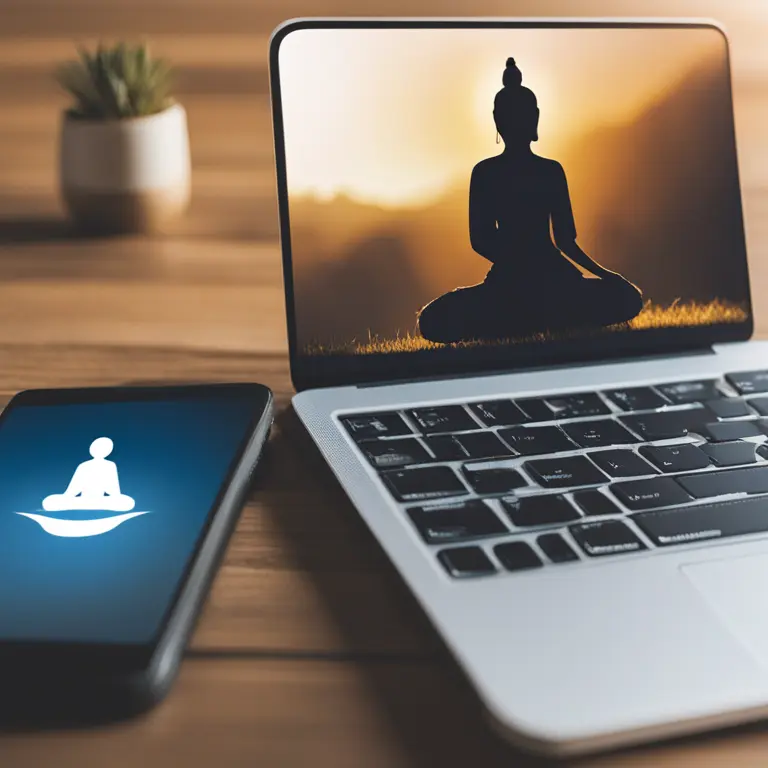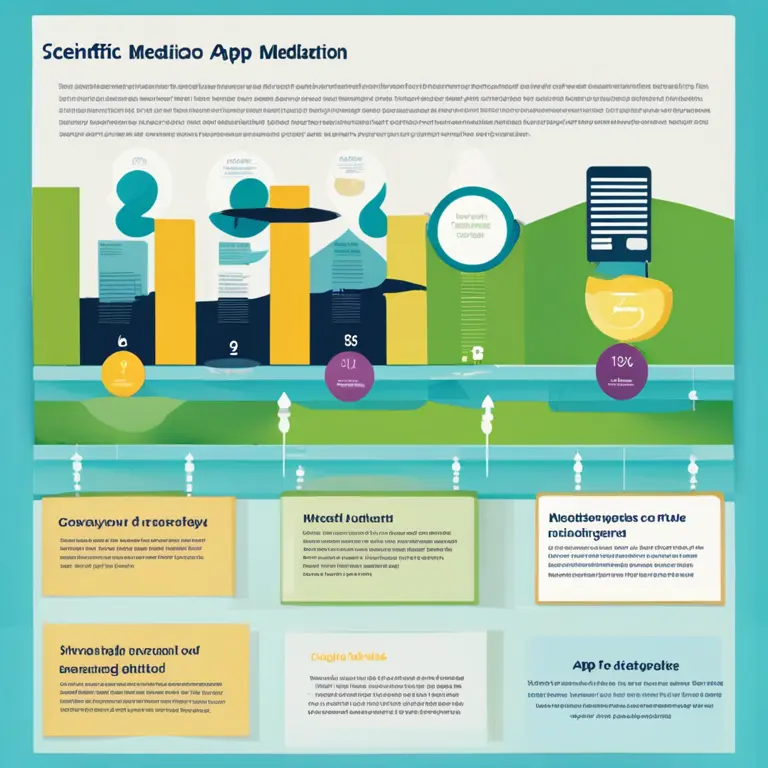
Do Meditation Apps Truly Work?
Examine the effectiveness of meditation apps in fostering mental well-being and their place in contemporary mindfulness practices.
article by Hina Kurosawa
Meditation Apps: A Digital Path to Tranquility
In an age where technology infiltrates almost every aspect of our lives, meditation apps have emerged as modern tools promising serenity and mental clarity. As of 2024, with society embracing digital solutions for virtually everything, from health monitoring to personal growth, these apps offer guided sessions crafted to fit our hectic schedules. The question remains, however: do they truly deliver the peace they promise? This article delves into recent studies and user experiences to understand the effectiveness of meditation apps in today's fast-paced world.

Scientific Backing of App-Based Meditation
Recent research has highlighted the potential benefits of using meditation apps. Studies have shown that they can improve focus, reduce stress, and even aid in managing symptoms of anxiety and depression. Moreover, researchers have observed that app-based meditation can lead to better sleep and heightened emotional well-being. These findings suggest meditation apps might be more than a fleeting trend, offering real value to those seeking to enhance their mental health through mindfulness practices.

User Experiences and Personal Journeys
Beyond the empirical data, countless user testimonials also affirm the positive impacts of meditation apps. From busy professionals to stay-at-home parents, individuals across various demographics have reported that these apps have made meditation accessible and straightforward, enabling them to incorporate this ancient practice into their daily routines. The convenience and personalized experiences offered by apps cater to both beginners and seasoned meditators alike, often becoming a gateway to deeper spiritual exploration.

The Role of Consistency and Commitment
One crucial factor in gauging the efficacy of meditation apps is the user's commitment to the practice. Like any form of exercise or self-care, the benefits of meditation are cumulative and require regular practice. Apps with features like progress tracking and reminders can aid in building a consistent routine. However, the onus ultimately falls on the user to maintain their practice and integrate the principles of mindfulness into their everyday lives.

Limitations and Potential Drawbacks
While meditation apps can be beneficial, they are not a one-size-fits-all solution. Some critics argue that the commodification of meditation through apps might dilute the practice's essence and spiritual roots. Additionally, individuals with severe mental health conditions might find that app-guided meditation is insufficient as a standalone therapy and may require professional support to address their needs effectively.
The Future of Meditation Apps
As technology continues to evolve, so too do meditation apps, incorporating advanced features like AI personalization, virtual reality environments, and biometric feedback. This continuous innovation points to a future where these apps could offer even more tailored and immersive experiences, potentially increasing their effectiveness. As the intersection of technology and wellness grows, meditation apps may become an integral part of a holistic approach to mental health.
Published: 1/14/2024
Modified: 1/15/2024
More predictions
Come back here soon to learn more about yourself and your future


Mindfulness & Meditation: A Guide for High Schoolers
Discover the benefits of mindfulness meditation tailored for the hectic life of high school students, and learn simple strategies to incorporate it into the daily routine.


Easing Loneliness with Meditation
Discover how mindfulness meditation can provide solace and connection to mitigate feelings of loneliness, enhancing emotional and mental well-being.


Harmonizing Life with Meditation Mantras
Delve into the transformative power of meditation mantras to align mind, body, and spirit for a harmonious existence.